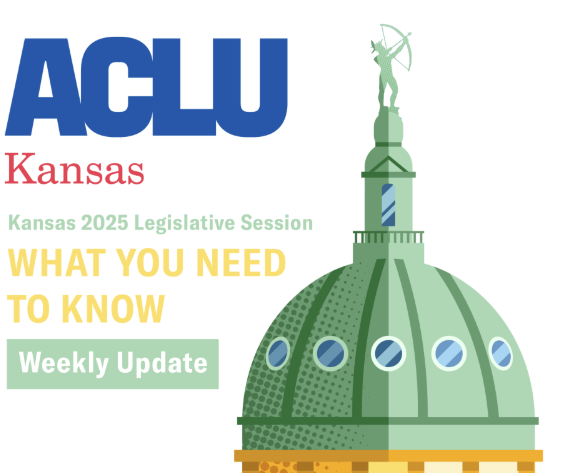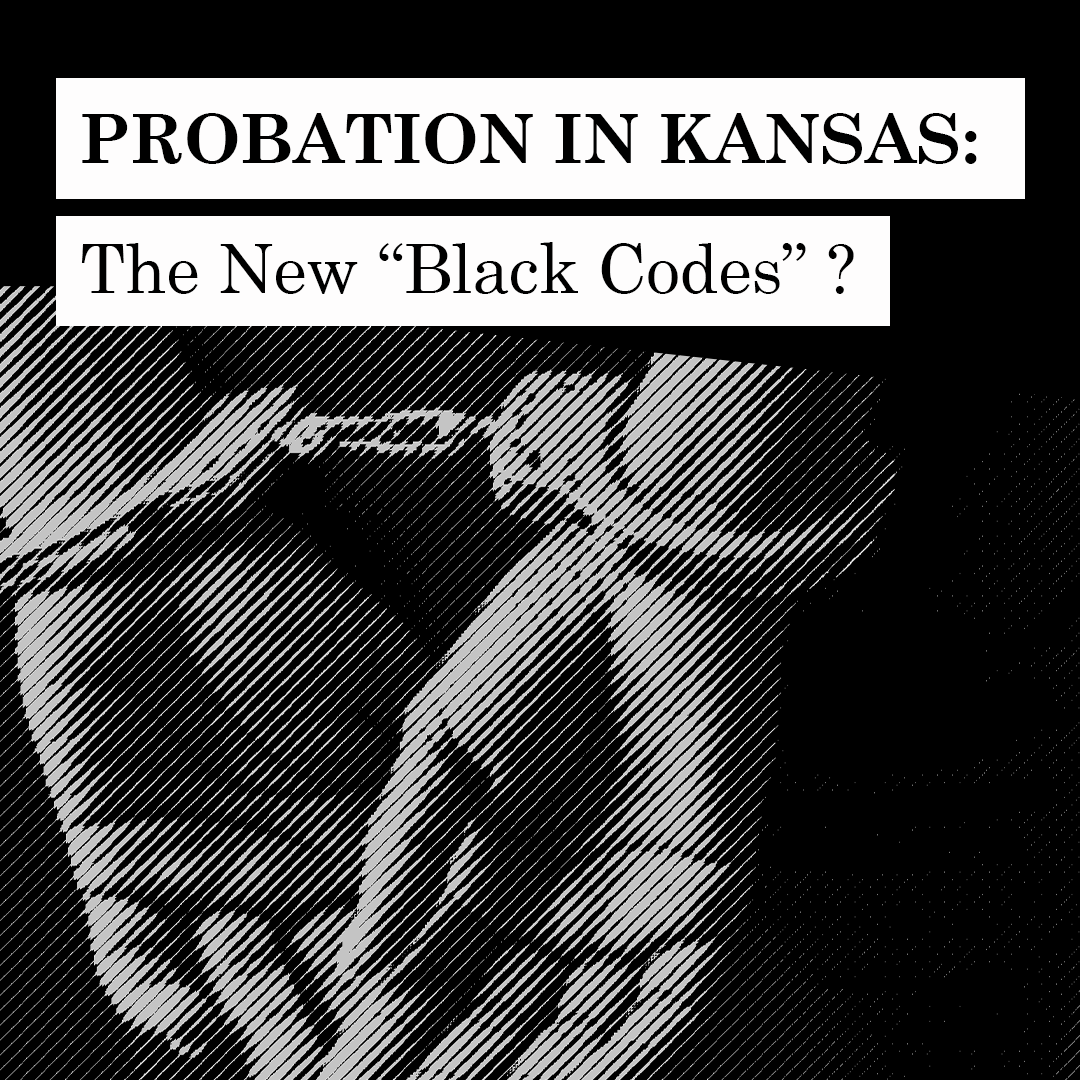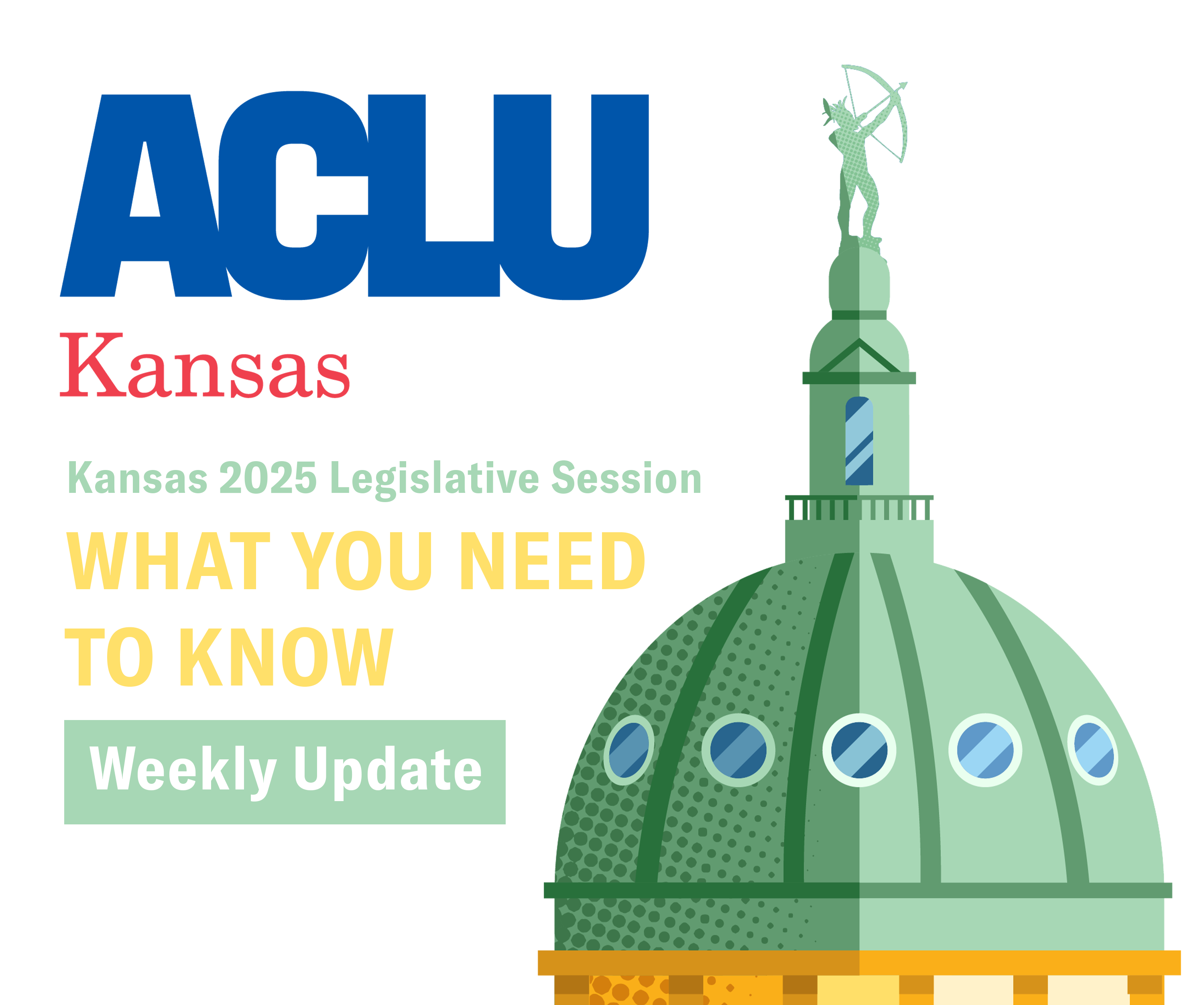Probation, the legal practice that allows an individual to remain in their community for all or part of the sentence for a criminal conviction, dates back as far as the early 19th century. Originally, the practice may have been intended to allow the court to punish an offender without punishing those who relied upon his support, or perhaps in the face of a harsh sentence to “let the punishment fit the crime.” It may be that the judges who originally meted out probation instead of prison or other harsh punishments intended to do a service to offenders and their communities. But in the 21st century, we see that probation can do more harm than good, especially when it permanently subjects poor Kansas and particularly Kansans of color to repugnant, Reconstruction era-like restrictions.
Immediately after the Civil War ended, Southerners could no longer lawfully control the movements of Black people through the institution of slavery and turned to enacting a series of laws that are collectively referred to as Black Codes. Black Codes served to surveil formerly enslaved people’s movements, criminalize their behaviors, and of course, control their labor. Texas and Arkansas enacted laws denying Black people the right to testify against whites, serve on juries or in state militias, or vote. South Carolina made it a crime for a “person of color” to travel to and remain in the state for more than 21 days without entering a bond with two landowners to ensure his good behavior. Mississippi’s Black Code required Black men to provide written evidence of a lawful home and employment as of January 1, 1866, which, for context, was only 25 days after the 13th Amendment was ratified. Mississippi’s and other states’ “vagrancy laws” meant the failure to provide proof of acceptable employment would result in fines and newly freed Black men being “hired out” by sheriffs or courts. Mississippi also made it a crime punishable by fine and imprisonment for a Black person to act as a minister of the gospel unless they were licensed by a “regularly organized church.” Almost every state’s Black Code made it unlawful for Black people to own guns, knives or other weapons.
Some form of the present Kansas probation statute was first enacted in 1969, but it’s unclear how long Kansas Courts have used probation as a tool. Under the current law, a judge may instruct a person on probation to avoid certain habits or behaviors and to stay away from certain places or people. A probation officer may visit a probationer’s home or any another location the officer chooses. And the individual can be ordered to maintain suitable employment, to provide volunteer labor, and to refrain from traveling without the court’s permission. If the probationer was convicted of a felony, they cannot vote for as long as they are on probation.
It's worth noting here, that in 2022, 31% of individuals on probation were Black Americans, even though Black Americans were 14 percent of the U.S. population1. In Kansas, we know that in 2022, 63 out of every 1000 Kansas were on probation2, but we don’t know the racial breakdown of that number because Kansas, in contrast to neighboring states3, did not report it. But it is fair to surmise based upon the fact that 24% of Kansans on parole in 2022 were black4, that Black Kansans, who make up only 6.2% of the state’s population, are also overrepresented on the probation rolls.
There are striking similarities between the Black Codes and the Kansas probation statute, and the percentage of Black Kansans on probation is wildly disproportionate to the total percentage of Black Kansans. Why should we be concerned? One could argue that these conditions of probation are reasonable and reasonably calculated to help an individual achieve rehabilitation. Well... maybe. Maybe being told with whom to associate and what to do with your time can help someone kick a bad habit. Perhaps being monitored and searched periodically without warning will give someone just the amount of accountability she needs to turn a corner. For some, probation conditions may prove helpful, assuming the oversight is for a reasonable time.
But what if I told you that these conditions of probation could last forever? What if I said that an individual convicted once for a crime could be subject to visits and searches by a probation officer indefinitely, or that the government could monitor a man’s activities, community associations and employment status for the rest of his life? If I told you that an individual once convicted by a Kansas court could never start fresh in a new state or retire to a warmer climate because they are tied to the State by their probation status, or that they could never vote, would that be reasonable? Or does it sound eerily similar to that most shameful of American institutions?
How can probation last forever? When a court orders probation, isn’t it for a few years? There is a condition of probation that I did not list earlier: in addition to any other conditions of probation, a judge shall absent circumstances the judge deems to be compelling, order a defendant to make reparation or restitution in an amount and manner determined by the court. While the order to pay restitution in itself does not make probation a lifetime sentence, another statute does. Kansas Statute section 21-6608(c)(7) states that if a defendant is ordered to pay full or partial restitution, probation may be continued for as long as the restitution ordered has not been paid. In other words, a person convicted of theft of property or services of the value of $100,000 or more who would normally be on probation for no more than three years, would be on probation for as long as she is not able to pay the restitution ordered. A person convicted of theft of property or services of the value of at least $1,500 but less than $25,000 would normally be sentenced to one year probation, but under this part of Kansas law, could be on probation for as long as she is unable to make financial restitution.
How long does it take to pay off a $25,000 debt if you earn the minimum wage and have a felony on your record, and perhaps a family to house and feed? What if that debt is $100,000? For comparison consider this. It will take the average middle-class homeowner 30 years to pay off a $250,000 mortgage. That is, of course, if all goes well.
Government oversight is common for people in the lowest socioeconomic class. They are more likely to have their parenting scrutinized and the intervention of child welfare services. If a low-income person requires housing assistance, state and/or federal workers will ask intrusive questions and periodically, sometimes without warning, enter their homes. They are more likely to interact with law enforcement and find themselves subject to conditions of probation that never end.
In 2022, 12% of the Kansans lived below the poverty line. Amongst Black and Latino Kansans, 20.7% and 20.6 % respectively lived below the poverty line. For Native American Kansans that number was 17.6%. These are the individuals most in need of a government that works for them. However, due to the laws like the Kansas probation extension statute, they are most likely to remain permanently disenfranchised, unable to vote for a better tomorrow.
It’s time to correct how our probation system and criminal legal system punish people for their poverty. We must use rigorous scrutiny to ensure that any infringements on privacy and movement imposed by probation on our fellow Kansans are truly reasonable, rather than a continuation of the legacy we claim to have left behind.
1 Probation and Parole in the United States, 2022 | Bureau of Justice Statistics.
2 Kansas 2022 | National Institute of Corrections.
3 In 2022, Missouri reported 18% of probationers were Black, Oklahoma reported that 19% of probationers were black, and Colorado reported that just under 10% of probationers were black.
4 Probation and Parole in the United States, 2022.
Date
Friday, January 31, 2025 - 12:15pm
Featured image
Show featured image
Hide banner image
Related issues
Criminal Legal Reform
Show related content
Pinned related content
Bail: Wealth-based Pre-trial Release
Tweet Text
[node:title]
Type
Menu parent dynamic listing
Show PDF in viewer on page
Style
Standard with sidebar
Show list numbers
Author
Monica Bennett
After two weeks of the legislative session, civil liberties remain heavily under attack. Attacks have come from all angles during week two, from decreasing voting access, to reintroducing abortion bans, to banning gender affirming care for minors. Yet, the ACLU of Kansas remains vigilant in defending the rights of Kansas under the capitol dome.
VOTING RIGHTS BILLS
Voting right continue to be under attack. The following bills and constitutional amendments have been introduced:.
- SB4: This bill would eliminate the 3-day mail processing window, disenfranchising Kansas voters. This bill unfairly punishes Kansans for postal service inefficiencies. We are vehemently opposed to this bill and submitted opposition testimony in Senate Federal & State Affairs.
- SB6: If passed, SB6 would outlaw Ranked Choice Voting (RCV) in the state of Kansas. This is an issue best decided at the local level. The ACLU agrees with the overall goal of RCV, to give voters more choices on election day, but has reservations about the impact of RCV on voter turnout in communities of color. The ACLU submitted neutral testimony on this bill.
- HB2021: A bill that would allow the Secretary of State’s office to dictate where county clerks place ballot drop boxes. No two counties are alike, and clerks know their counties’ needs better than legislators in Topeka. The ACLU is submitting an opponent’s testimony for on this bill.
- HCR5004: This House Concurrent Resolution attempts to amend the Kansas Constitution to explicitly restrict voting to Kansas citizens. This is an entirely unnecessary addition that would duplicate already existing state and federal law and, as we've seen in other states that have passed similar efforts, this redundancy is a trojan horse serving as a vessel for other voter suppression tactics. The ACLU submitted opposition testimony for to this bill.
IMMIGRATION BILLS & RESOLUTIONS
- SCR 1602: This non-binding resolution , which encourages Governor Kelly to collaborate with Trump-era deportation policies, was passed out of committee and favorably recommended to the Senate floor. We oppose this measure and will continue to monitor its progress through the legislative process.
- HB 2020: This bill would require a monthly report of non-citizens who were issued licenses to be sent to the Secretary of State and fails to address issues of data privacy. The ACLU of Kansas submitted opposition testimony to HB2020 in House Elections.
REPRODUCTIVE RIGHTS BILLS
Despite the Kansas Constitution enshrining the right to bodily autonomy, reproductive rights remain the target of several republican legislators.
- HB 2009 seeks to prohibit all abortions, except when necessary to save the life of the mother.
- HB 2010 would make it a criminal offense to perform abortions in Kansas.
Both bills were referred to the House Health and Human Services Committee, but no hearings have been set. We will continue to monitor these bills as the legislative session continues.
Additionally, HB 2062 was introduced, allowing child support to be collected from the point of conception. This bill would codify “fetal personhood”, granting legal rights to embryos and opening a backdoor to criminalizing pregnant people, and has failed in previous sessions. A scheduled hearing will be held in the House Judiciary Committee Wednesday, January 29th at 3:30 PM.
LGBTQ+ BILLS
Two medical and social gender-affirming care bans for minors were introduced in the House and Senate this during the week.
SB 63 and HB 2071: These bills will effectively ban access to all medically necessary healthcare (puberty blockers, HRT, etc.) for trans Kansans under 18 years old, ban state funds, including Medicaid, from being used to cover medically necessary healthcare and prescriptions for trans Kansans under 18, ban state facilities or individuals/entities receiving state funds from “promoting or advocating” social transition or medically necessary health care to trans Kansans under 18, and violate parents’ rights to control the healthcare decisions for their children. These twin pieces of legislation are a direct violation of our civil liberties. Everyone should have the freedom to make their own private medical decisions and consult with their doctors—without politicians’ intrusion. Families and doctors should be trusted to make these private medical decisions, not politicians. Also, this bill strips parents of their fundamental right to make decisions about their children’s medical care. Bans don’t create more options for care; they take away the only evidence-based option. Hearings have been set for both bills on Tuesday the 28th. SB 63 will be heard at 8:30am in the Senate’s Public Health and Welfare committee, and HB 2071 will be heard at 1:30pm in the House’s Health and Human Services committee. The ACLU of Kansas will testify in person, in opposition, in front of both committees.
Date
Monday, January 27, 2025 - 1:15pm
Featured image
Show featured image
Hide banner image
Show related content
Tweet Text
[node:title]
Type
Menu parent dynamic listing
Show PDF in viewer on page
Style
Standard with sidebar
Show list numbers
Author
Lindsay Callender


